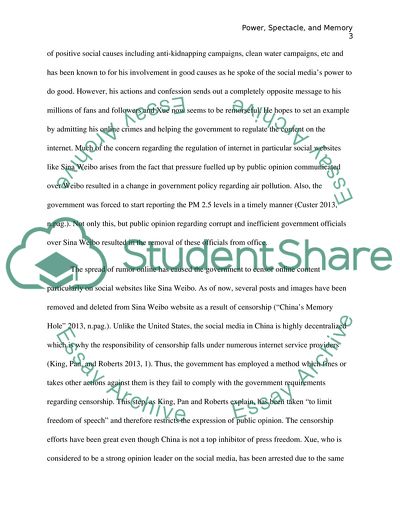Cite this document
(Power, Spectacle, and Memory - Impact of Social Media in China Case Study Example | Topics and Well Written Essays - 3000 words - 1, n.d.)
Power, Spectacle, and Memory - Impact of Social Media in China Case Study Example | Topics and Well Written Essays - 3000 words - 1. https://studentshare.org/media/1805124-power-of-sina-weibo
Power, Spectacle, and Memory - Impact of Social Media in China Case Study Example | Topics and Well Written Essays - 3000 words - 1. https://studentshare.org/media/1805124-power-of-sina-weibo
(Power, Spectacle, and Memory - Impact of Social Media in China Case Study Example | Topics and Well Written Essays - 3000 Words - 1)
Power, Spectacle, and Memory - Impact of Social Media in China Case Study Example | Topics and Well Written Essays - 3000 Words - 1. https://studentshare.org/media/1805124-power-of-sina-weibo.
Power, Spectacle, and Memory - Impact of Social Media in China Case Study Example | Topics and Well Written Essays - 3000 Words - 1. https://studentshare.org/media/1805124-power-of-sina-weibo.
“Power, Spectacle, and Memory - Impact of Social Media in China Case Study Example | Topics and Well Written Essays - 3000 Words - 1”. https://studentshare.org/media/1805124-power-of-sina-weibo.


